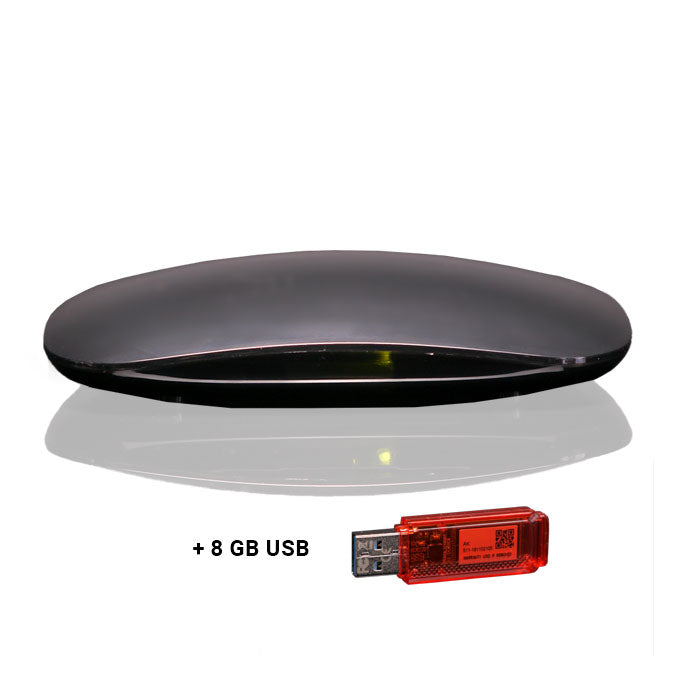A Digital Video Recorder (DVR) for TV is a versatile device that lets you record live television shows, store them, and watch them at your convenience. With the rising demand for personalized entertainment, DVRs have become an essential tool for households. They offer flexibility, convenience, and an enhanced viewing experience that traditional TV setups can't provide. In this guide, we'll explore everything you need to know about DVRs for TVs, from their benefits and features to tips for choosing the right one.
What is a Digital Video Recorder for TV?
A Digital Video Recorder for TV is an electronic device that records video content in a digital format onto a storage medium like a hard drive. Unlike the old VHS recorders, DVRs offer much better quality, more storage, and a host of features, including playback, pausing live TV, and advanced recording options. This allows users to easily manage what they watch, when they watch it, and how they interact with their television content.
Benefits of Using a DVR for TV
Using a DVR for TV provides numerous benefits, making it a great addition to your entertainment setup. One of the main benefits is convenience—being able to record shows and watch them on your schedule eliminates the need to arrange your time around TV broadcasts. DVRs also allow you to skip commercials, pause live TV, and even rewind to replay interesting moments, giving you complete control over your viewing experience.
Features to Look for in a Digital Video Recorder
When choosing a DVR for your TV, it’s important to consider the features that best suit your needs. Some key features include storage capacity, the ability to record multiple channels simultaneously, and ease of use. Additionally, many DVRs come with advanced functions like voice control, integration with streaming services, and support for HD or 4K video, all of which enhance your viewing experience.
How to Set Up a Digital Video Recorder for TV
Setting up a Digital Video Recorder for TV is a simple process, but it does require a few specific steps. First, ensure your DVR is compatible with your TV and TV provider. Once you've verified compatibility, connect the DVR to your TV using the appropriate cables—most modern DVRs use HDMI connections for optimal quality. After connecting, follow the instructions on your DVR to complete the setup and start recording.
Recording Your Favorite Shows with a DVR
Recording shows with a DVR is straightforward and requires just a few button presses. Most DVRs offer an electronic program guide (EPG) that lets you view upcoming TV shows and schedule recordings in advance. You can even set up series recordings, which will automatically record every episode of a show, ensuring you never miss an installment of your favorite series.
Differences Between DVR and Cloud DVR
There are two main types of DVRs: physical DVRs that connect directly to your TV, and cloud DVR services that record content and store it on the provider’s servers. Physical DVRs give you complete control over your recordings, but may have limited storage. Cloud DVRs, on the other hand, offer more flexible storage and accessibility from multiple devices but are usually subject to additional subscription fees.
DVR and Streaming Services: Compatibility Explained
Many DVRs are now compatible with popular streaming services, giving you even more options for entertainment. By integrating DVR with streaming, you can easily switch between live TV and services like Netflix, Hulu, or Amazon Prime Video. Some DVRs even allow you to record content from streaming services, allowing you to create your personalized library of on-demand content.
Choosing the Right DVR for Your TV Setup
Choosing the right DVR depends on several factors, such as your budget, the type of TV service you have, and your recording needs. If you primarily watch live TV and want to record multiple channels, look for a DVR with large storage and multiple tuners. For those who are more into streaming content, a hybrid DVR that combines live TV recording and streaming capabilities may be the best option.
How DVR Storage Capacity Affects Your Recording Options
The storage capacity of your DVR is crucial, as it determines how many shows or movies you can store. DVRs typically come with storage ranging from 500GB to 2TB, with higher capacity meaning more content can be stored. If you plan to record multiple HD or 4K shows, it is best to invest in a DVR with at least 1TB of storage, so you don't run out of space when you need it the most.
DVR vs VCR: Why DVR is the Better Option
Although VCRs were popular in the past, DVRs have completely replaced them due to their advanced features and convenience. DVRs offer superior picture quality, the ability to pause and rewind live TV, and much larger storage capacity. Additionally, DVRs don’t require you to use physical tapes, which can degrade over time, making them a much more efficient and reliable solution for recording TV content.
Tips for Managing Your DVR Storage
Managing DVR storage effectively will ensure you always have space to record new shows. One way to do this is by regularly deleting watched programs. Many DVRs also offer options to prioritize recordings, so if storage becomes limited, older or less important shows can be deleted automatically to make room for new content. Reviewing your recording settings can also help manage storage more effectively.
Recording Live Sports with a DVR: A Game-Changer for Fans
One of the most popular uses of DVRs is recording live sports events. DVRs allow fans to record their favorite games and watch them later, without the risk of missing any of the action. You can even use the DVR’s playback controls to rewind and review crucial moments, or skip through breaks to get straight to the action. This feature is especially useful when games are scheduled at inconvenient times.
DVRs and Smart TVs: A Perfect Pair
DVRs work seamlessly with smart TVs, allowing you to combine the features of both devices for a complete entertainment experience. By connecting a DVR to a smart TV, you can easily access recorded content through the TV’s user interface and even control your DVR with the smart TV’s voice commands. This integration makes it easier than ever to manage your entertainment, ensuring you have access to both live and recorded content whenever you want.
Troubleshooting Common DVR Issues
Like any other technology, DVRs may occasionally experience issues such as failed recordings, storage problems, or connectivity errors. Most common issues can be fixed by simple troubleshooting steps like restarting the device, checking connections, or clearing storage. Consulting your DVR’s user manual or contacting customer support can help resolve more complex issues and ensure that your DVR continues to operate smoothly.
The Future of Digital Video Recorders for TV
The future of DVRs for TV looks promising, as they continue to evolve to meet the needs of modern viewers. As technology advances, we can expect to see improvements in storage capacity, integration with streaming services, and features like cloud storage. Additionally, with the rise of 4K and 8K content, future DVRs will likely be equipped to handle higher resolution video, providing viewers with even better picture quality and an enhanced viewing experience.
FAQs
What is the difference between a DVR and a cloud DVR?
A DVR records content on a physical storage device, while a cloud DVR stores recordings on the provider's server, allowing you to access content from multiple devices.
Can I record streaming content with a DVR?
Some DVRs allow you to record streaming content, especially those that integrate with popular streaming services.
How much storage do I need for a DVR?
The required storage depends on your recording habits; 1TB is generally sufficient for standard use, while heavy users may need more.
Is it possible to record more than one show at a time?
Yes, many DVRs come with multiple tuners, allowing you to record multiple channels simultaneously.


